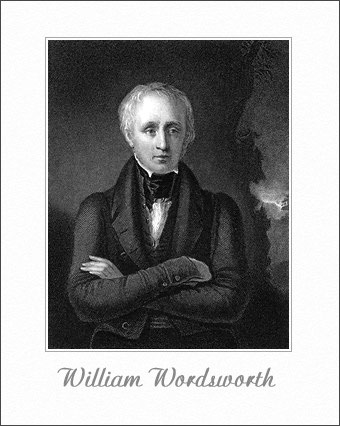
"I Wandered Lonely as a Cloud" (also commonly known as "Daffodils" or "The Daffodils") is a poem by William Wordsworth. It was inspired by an April 15, 1802 event in which Wordsworth and his sister, Dorothy, came across a "long belt" of daffodils. Written in 1804, it was first published in 1807 in Poems in Two Volumes, and a revised version was released in 1815, which is more commonly known. It consists of four six-line stanzas, in iambic tetrameter and an ABABCC rhyme scheme. It is usually considered Wordsworth's most famous work. In the "Nation's Favourite Poems", a poll carried out by the BBC's Bookworm, "I Wandered Lonely as a Cloud" came fifth. Well known, and often anthologised, "I Wandered Lonely as a Cloud" is commonly seen as a classic of English romanticism within poetry, although the original version was poorly reviewed by Wordsworth's contemporaries.
"Daffodils" (1804)
I WANDER'D lonely as a cloud
That floats on high o'er vales and hills,
When all at once I saw a crowd,
A host, of golden daffodils;
Beside the lake, beneath the trees,
Fluttering and dancing in the breeze.
Fluttering and dancing in the breeze.
Continuous as the stars that shine
And twinkle on the Milky Way,
They stretch'd in never-ending line
Along the margin of a bay:
Ten thousand saw I at a glance,
Tossing their heads in sprightly dance.
Tossing their heads in sprightly dance.
The waves beside them danced; but they
Out-did the sparkling waves in glee:
A poet could not but be gay,
In such a jocund company:
I gazed -- and gazed -- but little thought
What wealth the show to me had brought:
What wealth the show to me had brought:
For oft, when on my couch I lie
In vacant or in pensive mood,
They flash upon that inward eye
Which is the bliss of solitude;
And then my heart with pleasure fills,
And dances with the daffodils.
And dances with the daffodils.

